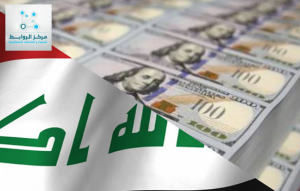By: Shatha kalel
Under Prime Minister Mohammed Al-Sudani’s leadership, Iraq achieved substantial growth in non-oil revenues, rising from seven trillion Iraqi dinars to twenty-seven trillion dinars within two years. This significant increase signals a strategic shift towards economic diversification and stability.
Between 2022 and 2024, Iraq experienced notable revenue growth due to several targeted economic reforms and initiatives:
Income Tax Revenue: Income tax revenues surged by 118%, reflecting successful tax reforms and improved taxpayer compliance. This growth indicates effective restructuring of the tax system and enhanced fiscal oversight.
Commodity Revenues: Commodity revenues increased significantly by 285%, driven by improved production techniques, expanded export markets, and strategic investment in the commodities sector.
Fees Revenue: Government-collected fees saw a 50% increase, demonstrating enhanced regulatory efficiency and better administrative management, underscoring the government’s ability to optimize revenue generation from various sectors.
Industrial and Agricultural Developments
To sustain and support this revenue growth, the Iraqi government focused on strategic investments and sectoral advancements:
Industrial Expansion: Significant investments were made in key industrial sectors, including fertilizer production, chemical manufacturing, and military equipment. These investments not only expanded industrial capacity but also increased the sector’s contribution to GDP.
Agricultural Advancements: The government expanded agricultural land from 5 million to 7 million acres, aiming to bolster domestic food production, enhance food security, and reduce reliance on agricultural imports, thus strengthening the agricultural sector’s role in the economy.
Policy Goals and Strategic Directions
The federal budget reflects a strategic realignment to reduce dependency on oil revenues from 95% to 80% of total revenues, highlighting a focus on balanced economic development and sustainability. Key policy directions include:
Strengthening Local Industries: Efforts are being made to enhance the local pharmaceutical, iron, and steel industries. By reducing import dependency and boosting domestic production, these initiatives aim to build a more self-reliant industrial base.
Private Sector Development: The government is promoting private sector growth through the establishment of new manufacturing plants and support for existing enterprises. This approach seeks to stimulate economic activity, create jobs, and foster innovation.
Prime Minister Mohammed Al-Sudani’s administration has demonstrated a clear commitment to diversifying Iraq’s economic base and building a robust financial future. The substantial increase in non-oil revenues reflects the success of these strategic initiatives and positions Iraq for enhanced economic stability and growth.

